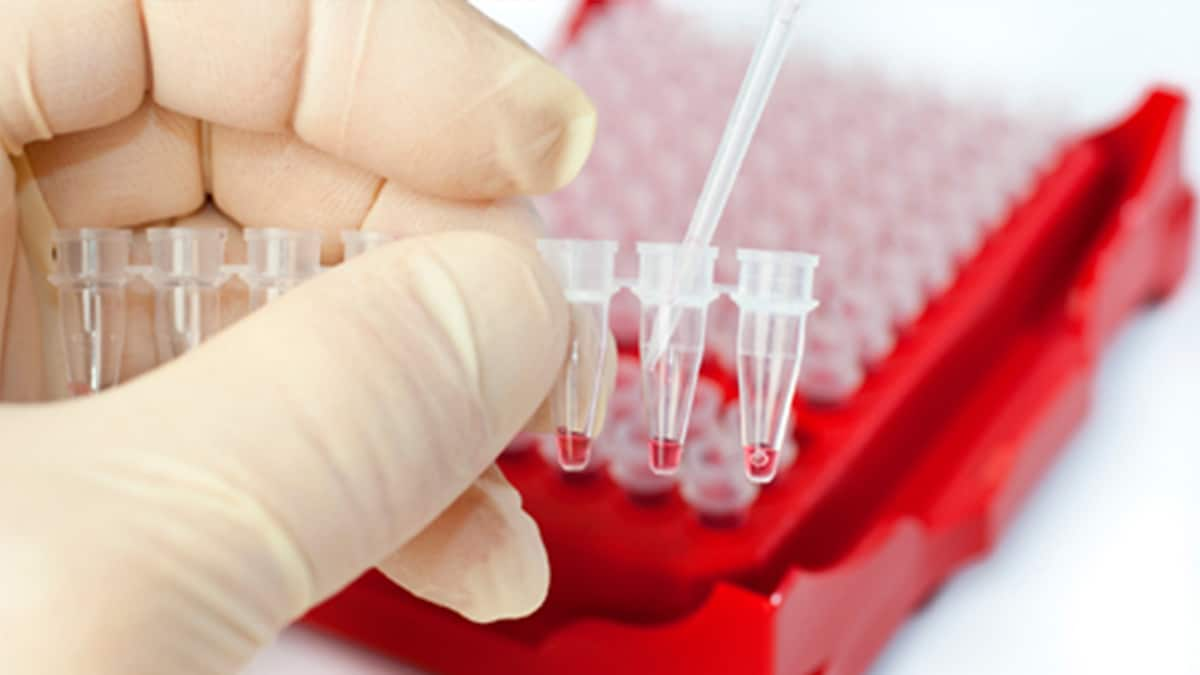Key points
- Your genetic counselor or other health care provider may recommend genetic testing based on your personal and family history of cancer, your ancestry, and whether you have a family member with a genetic mutation.
- Genetic test results may help you understand and manage your risk for breast, ovarian, and other cancers.

How genetic testing can help you
Genetic testing can help you understand and manage your risk for breast, ovarian, and other cancers. Knowing whether or not you have a genetic mutation that makes you more likely to get cancer can help you decide what steps to take to prevent cancer or find it early.
Genetic counseling before genetic testing is important to find out if you and your family are likely to benefit from genetic testing.
Who should be tested
Usually, genetic testing is recommended if you have:
- A strong family health history of breast and ovarian cancers.
- A moderate family health history of breast and ovarian cancers and are of Ashkenazi or Eastern European Jewish ancestry.
- A personal history of breast cancer and meet certain criteria related to age of diagnosis, type of cancer, presence of certain other cancers or cancer in both breasts, ancestry, and family health history.
- A personal history of ovarian, fallopian tube, or primary peritoneal cancer.
- A known mutation in the breast cancer (BRCA) genes in someone in your family.
A genetic counselor can help you determine the best testing plan for you and your family. Whenever possible, the first person tested in your family should be someone who has had breast, ovarian, or another BRCA-related cancer.
Types of tests
Genetic testing for hereditary breast and ovarian cancers looks for mutations in the BRCA1 and BRCA2 genes. Your genetic counselor may suggest testing using a multigene panel. A multigene panel looks for mutations in several genes, including BRCA1 and BRCA2, at the same time.
If you are of Ashkenazi or Eastern European Jewish ancestry, your genetic counselor may suggest testing for three specific BRCA gene mutations, called founder mutations. These are the most common mutations in people of Ashkenazi or Eastern European Jewish ancestry.
Genetic testing is done with a blood or saliva sample. The sample may be taken in a laboratory, doctor's office, hospital, or clinic. Or a kit may be sent to your home, and you send the kit to a laboratory that does the tests. It may take several weeks or longer to get the test results.
If your test result is positive
The test showed that you have a mutation known to cause hereditary breast and ovarian cancers.
What it means for you
- You can take steps to make it less likely that you will get cancer or to find cancer early if you get it.
- If you have had breast or ovarian cancer, a positive test result can help guide your treatment decisions.
What it means for your family
- If other adult family members decide to get genetic testing, their test should check for the same mutation you have.
- Your parents, children, sisters, and brothers each have a 1 in 2 (50%) chance of having the same mutation.
If your test result is negative
The test didn't find a mutation. But what this means for you depends on whether you have had breast or ovarian cancer, and whether another relative is known to have a mutation.
If you have had breast or ovarian cancer
What it means for you
- The test did not find a mutation that caused your cancer.
- Further testing may be available.
What it means for your family
- The cancers in your family are less likely to be due to a genetic mutation, unless another relative is known to have a mutation.
- Genetic testing in your family members who have not had breast or ovarian cancer is unlikely to be helpful, unless another relative is known to have a mutation.
- Genetic testing may be helpful for family members who have had breast or ovarian cancer. This is because there may be a genetic mutation in your family, but you did not inherit it.
If you have not had breast or ovarian cancer
- If a genetic mutation has not been found in another family member, you are still at higher risk for the cancers that run in your family.
- If a genetic mutation has been found in another family member and the test showed you do not have the mutation, you are not at higher risk than the average person for breast or ovarian cancer. You also cannot pass the mutation on to your children.
If your test result is variant of uncertain significance (VUS)
The test found a mutation in one of the genes associated with hereditary breast and ovarian cancers, but doctors don't know if that mutation causes cancer. Some mutations prevent genes from working properly, while others have no effect. It is not always easy to tell whether or not a mutation in a gene has a harmful effect.
- If you have had breast or ovarian cancer, it is unclear whether the mutation found in the test caused your cancer. Further testing may be available.
- Whether or not you have had breast or ovarian cancer, you are at higher risk for the cancers that run in your family.
Are you worried about getting a genetic test?
Lisa: My Experience with BRCA Counseling and Testing
Lisa, age 41, talks about how her family history led her to get genetic counseling and testing for BRCA gene mutations. In this video, she describes the genetic testing experience and explains how it helped her understand her family history and manage her risk for breast cancer.
